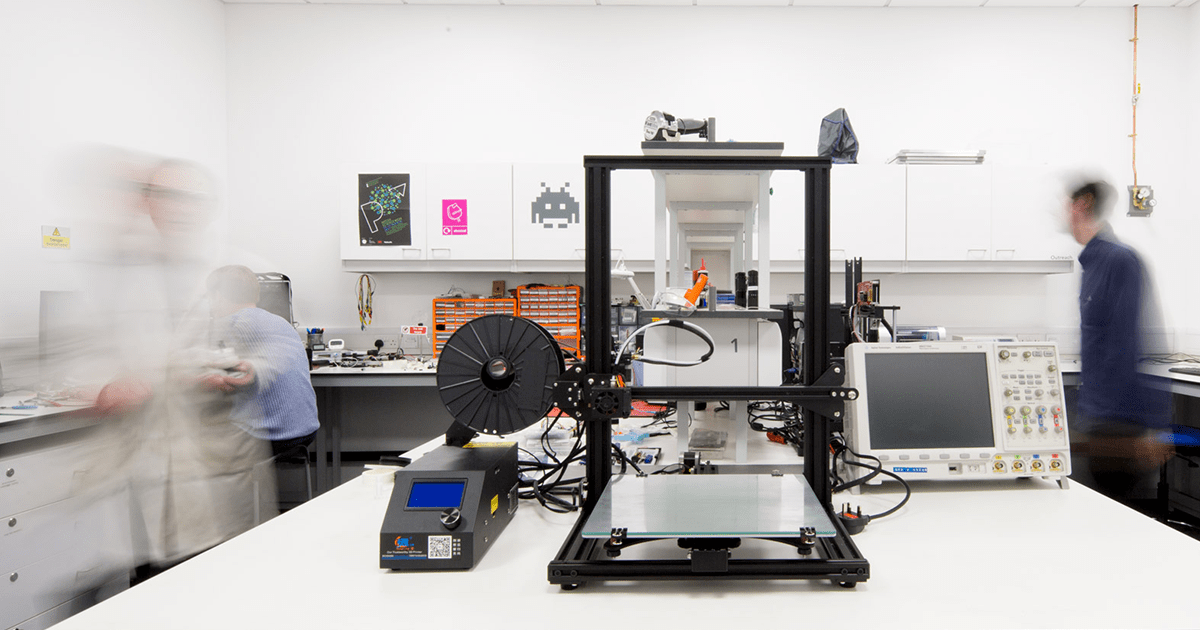 The Bristol Industrial PhD Placement Fund is an EPSRC-funded scheme which pairs doctoral researchers with relevant industrial partners — funding placements in sectors ranging from start-ups to larger companies, government bodies and policy organisations.
The Bristol Industrial PhD Placement Fund is an EPSRC-funded scheme which pairs doctoral researchers with relevant industrial partners — funding placements in sectors ranging from start-ups to larger companies, government bodies and policy organisations.
In August 2019, doctoral researcher Henry Stennett joined Unit DX, central Bristol’s deep tech incubator, for a three-month placement. Henry shares his experiences below.
Why an industrial placement?
I was keen to get more science communication experience for my CV alongside my research work, so I dropped into a Q&A session about industrial placements run by the Bristol Doctoral College (BDC) at the PGR Hub.
A couple of weeks later, I took part in a ‘speed networking event’ which was a chance to meet companies offering placements. There weren’t many companies offering what I was looking for, but Aby Sankaran (BDC Industrial PhD Programme Officer) did a great job of ferreting out opportunities for me.
She got in touch with Adam, head of marketing at Unit DX. Unit DX is a deep tech incubator in central Bristol. They help science start-ups to grow, providing lab and office space, investment and mentoring.
Why science communication?
During the training period of my CDT course, we were encouraged to reflect on the relationships between science and society. I became interested in science outreach for a few reasons:
- Synthetic biology is a touchy subject: it raises concerns that scientists are ‘playing God’ or profiteering, some of which are definitely valid.
- We’re living through a crisis of trust: polling shows that people don’t trust institutions, experts, or even facts.
- It’s a lot of fun: science communication lets you unleash your creativity, and embrace improvisation and performance.
Through volunteering and projects like the EU’s Horizon 2020 PERFORM, I learned that dialogues are more important than lectures and that there is no such thing as ‘the public’ — we communicate with diverse groups, and have to adapt our approach every time.
Why Unit DX?
I’d been vaguely aware of Unit DX for a while. My supervisor, Paul Race, and Martin Challand, a postdoc in his group, were spinning out their company Zentraxa when I joined. Harry Destecroix, Unit DX’s CEO, judged a competition during my PhD induction where we pitched synthetic biology start-up ideas. The best feedback he had for my group was that we were ‘realistic about the idea’s flaws’…
Adam reached out to me via email, but before I had a chance to reply, we met in person. Embarrassingly, I was rushing out of my flat with a tin of Stella, on my way to a Mos Def gig. Adam recognised me from my picture online, and asked if I was a PhD student — it turned out that we were next-door neighbours! I got back to him the next day and went down to Unit DX for a meeting.
I knew immediately that Unit DX would be a great fit. I’ve been allowed to independently develop my own projects and encouraged to get involved in anything that interests me.
What’s your role at Unit DX?
On a typical day, I’m working on one main project — researching and writing a piece of content and taking accompanying photographs. There’s a lot of ad hoc work too. Someone will appear at my elbow with a problem: a press release that needs writing or an event to publicise on social media.
My role involves talking to lots of people: in strategy meetings, during interviews for pieces I’m writing, or at graphic design workshops with Patrick Fallon, the lead designer. I also plan public engagement activities with Charlie Proctor, the outreach coordinator, and deliver them about once a week. Being involved in so many different projects keeps work interesting.
What have you learned from your placement?
The main thing I’ve learned is how to work quickly — often we get very little notice on the communications team! Adam has given me a book called ‘Writing Without Bullshit’ to read, which emphasises that your reader’s time is always more important than your own.
I’ve learned so much about writing that will help with my thesis: how to plan and structure a piece, and how to communicate ideas more effectively.
I’ve also developed my professional skills, and I hope to be more organised when I return to the lab, and better at working in teams.
I’d highly recommend applying for a placement. It’s a rare opportunity to try your hand at something that isn’t research and expand your skill set. And to be honest, it’s good to get out of the lab for a while!
Find out more about Henry’s research on his University of Bristol profile page and on Twitter.
Interested in enhancing your own experience and employability thorough a placement? Visit our Bristol Industrial PhD Placement Fund page to find about eligibility and how you can apply.

